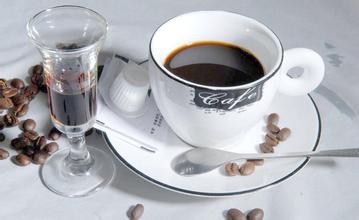Introduction of Guatemalan Coffee planting Environment introduction of Guatemalan Coffee Manor
Guatemalan coffee
Guatemalan coffee beans are mostly cultivated in high-altitude volcanic soils belonging to the most advanced Arabica (Arabica) variety. Due to the long ripening period, the beans are medium and dense (Guatemalan coffee beans are graded not on the basis of particle size, but on the basis of shortcomings), and the bean color is dark turquoise. The unique sour taste of fragrance, mellow, sweetness and freshness is characterized by the aroma and taste of coffee beans hidden in its sour taste. Therefore, coffee beans with this characteristic can be called high-quality coffee beans. The name of the product is suitable for the taste characteristics of baking degree.
The average elevation of dangerous countries is high, with coffee belts distributed above 1500 meters and between 14 and 16 degrees north latitude, it is the easiest to grow extremely hard beans, all of which are washed, of which 45% belong to fine grade, the proportion is quite high, and there are also a small amount of Robusta.
The varieties of coffee in dangerous countries are mainly bourbon, Tibica, Kaduai and Kaddura, and there are also a small amount of yellow bourbon, Rosa and Pacamara. They are quite diverse, but they can retain the ancient Dibica and Bourbon. Guatemala is also commendable that it borders Mexico to the north, Honduras and El Salvador to the south, the Caribbean to the east and the Pacific Ocean to the west. There are tropical rain forests, volcanic geology, plateau valleys and changeable microclimate. Guatemalan coffee once enjoyed a reputation as the best quality coffee in the world. The extra-hard coffee beans here are full-grained, delicious and balanced, and the coffee made with it is pure and rich.
There are few places in the world that offer a variety of high-quality coffee beans like those produced in Guatemala. The reason for the excellent quality of Guatemalan coffee beans is due to the unique conditions of their producing areas, including different climate changes in each region, rich soil formed by volcanoes, abundant natural water resources, high-altitude mountains, shady and moist forests, and so on. The coffee beans in each producing area have their own characteristics, and Guatemala has won a lot of praise in the international community, especially Antigua, how perfectly coordinated its sour, sweet and mellow texture is. Add a hint of smoke and emphasize its mystery, and after tasting it, you will have a reason not to look for substitutes everywhere.
Here, the slopes of Sierra Madre volcano provide ideal conditions for growing high-quality coffee beans, and coffee growing at high altitudes is full of vitality. Compared with other kinds of coffee, tasters prefer this mixed flavor coffee with spicy flavor. The extra-hard coffee beans here are a rare good coffee with full grains, delicious taste and balanced acidity. In addition, Guatemala has attracted a lot of attention because of its giant coffee beans.
Antigua is a famous producer of coffee. Antigua coffee is produced in Hacienda Carmona, where the best quality coffee is EL Pulcal, which is not only of good quality, but also has a stronger flavor, richer taste and stronger tobacco flavor than other Guatemalan coffee. Every 30 years or so, the area near Antigua is hit by a volcanic eruption, which provides more nitrogen to the already fertile land, and plenty of rainfall and sunlight make the place more suitable for growing coffee.
Other coffee producers include San Marco, Oriente & Coban, Palcya, Mataquescuintia and La Uman in Sakapa.

Important Notice :
前街咖啡 FrontStreet Coffee has moved to new addredd:
FrontStreet Coffee Address: 315,Donghua East Road,GuangZhou
Tel:020 38364473
- Prev

Introduction to the flavor and taste of Tanzania coffee manor Tanzania Cafe in Arusha Coffee Manor
Coffee is one of the main cash crops in Tanzania, ranking fourth after cotton, tobacco and cashew nuts, mainly sold to Italy, Japan and the United States. Coffee exports play an important role in the national economy of Tanzania. Tanzania's main coffee producing area is located at the foot of Mount Kilimanjaro, which is rich in volcanic soil and coffee trees planted here.
- Next

The flavor and taste characteristics of the coffee farm in Kenya introduce Berman Manor.
There are two kinds of local coffee farms. One is a large farm that covers an area of more than 30 mu. Due to the low altitude, the coffee beans produced are of medium quality. Gourmet beans are generally produced in small farms, which are mostly located in the foothills or volcanic slopes that are most suitable for coffee beans at an altitude of 2000 meters above sea level. The Kenyan government attaches great importance to the coffee industry. The government funded the construction of a washing treatment plant, coffee picked by small farmers.
Related
- Does Rose Summer choose Blue, Green or Red? Detailed explanation of Rose Summer Coffee plots and Classification in Panamanian Jade Manor
- What is the difference between the origin, producing area, processing plant, cooperative and manor of coffee beans?
- How fine does the espresso powder fit? how to grind the espresso?
- Sca coffee roasting degree color card coffee roasting degree 8 roasting color values what do you mean?
- The practice of lattes: how to make lattes at home
- Introduction to Indonesian Fine Coffee beans-- Java Coffee producing area of Indonesian Arabica Coffee
- How much will the flavor of light and medium roasted rose summer be expressed? What baking level is rose summer suitable for?
- Introduction to the characteristics of washing, sun-drying or wet-planing coffee commonly used in Mantenin, Indonesia
- Price characteristics of Arabica Coffee Bean Starbucks introduction to Manning Coffee Bean Taste producing area Variety Manor
- What is the authentic Yega flavor? What are the flavor characteristics of the really excellent Yejasuffi coffee beans?

